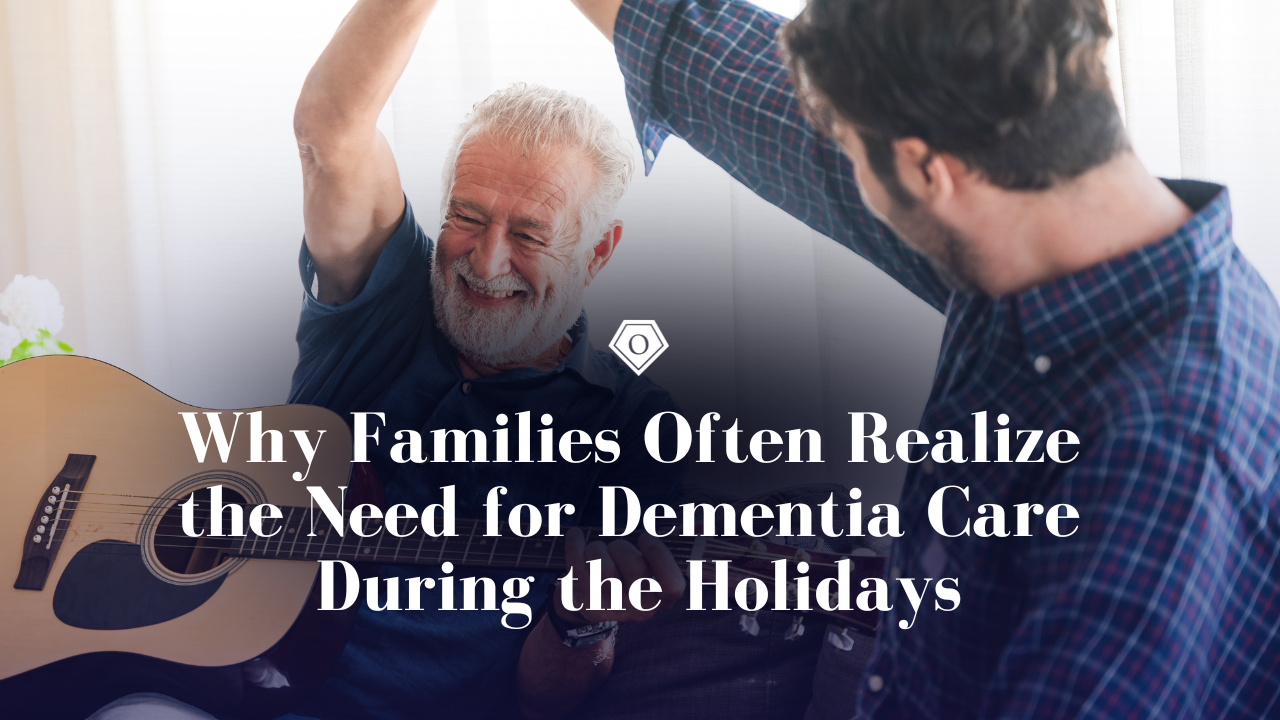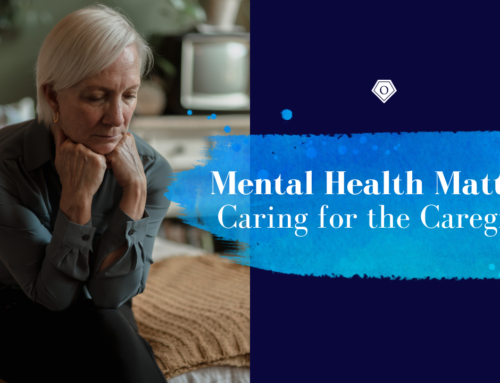As the holiday season approaches, families across the country look forward to reconnecting, creating memories, and spending quality time together. For many, it’s the one time of year when everyone is gathered under the same roof, making it a perfect occasion to catch up and observe each other’s well-being. For families with aging loved ones, however, the holidays can also bring to light concerns about cognitive decline, memory loss, and the need for specialized care.
In this article, we’ll explore why families often notice the need for dementia care around the holidays and how to approach these conversations with empathy and planning.
Extended Time Together Uncovers Changes
During the holidays, families often have the rare opportunity to spend days—rather than hours—with each other. It’s this extended time that can reveal changes in an elderly loved one’s cognitive and physical abilities. For instance, while a short phone call or brief visit may mask early signs of dementia, spending several days together can make these signs harder to overlook. Relatives may notice behaviors that raise concerns, such as memory lapses, trouble following conversations, or difficulty performing simple daily tasks.
Social Gatherings Highlight Behavioral Changes
Holidays bring social events, family gatherings, and a series of traditions that involve interaction, planning, and participation. Dementia can impact a person’s social skills, making it challenging to keep up with conversations, remember names, or even recognize family members they don’t see regularly. Loved ones may notice that their family member is withdrawn, easily confused, or simply not engaging as they once did. Recognizing these differences can be a wake-up call for families to consider professional dementia care.
Difficulty Managing Everyday Tasks Becomes Clear
During the holiday season, seemingly simple activities can become overwhelming for someone with dementia. Cooking meals, organizing a gathering, and remembering details can be tough for a loved one who is in the early stages of dementia. If a family member is struggling with activities like preparing food, shopping, or personal hygiene, these signs may indicate the need for additional support.
Memory Lapses and Repetition are More Noticeable
As dementia progresses, short-term memory loss becomes more apparent. During holiday gatherings, a loved one might repeatedly ask the same questions, forget the names of close family members, or even appear lost in familiar settings. These memory issues, though subtle at first, can be strong indicators that a loved one may need help. When multiple family members notice similar concerns, it often brings the issue to the forefront, prompting discussions about dementia care.
Reflecting on Past Years Shows a Clear Change
The holiday season invites reflection, and it’s common to compare the current year to past gatherings. Family members may see changes in a loved one’s behavior, personality, or memory from previous years. Even small declines in cognitive function can become more evident when compared with the person they were last holiday season, leading to a growing recognition that they may need extra care.
Increased Stress on Family Caregivers
For those already caring for a loved one with dementia, the holiday season can highlight the growing demands of caregiving. The added responsibilities of holiday preparations can leave caregivers feeling exhausted and stretched thin. This stress often prompts caregivers and family members to discuss whether professional dementia care might be the right solution. Families can then begin exploring options to ensure their loved one receives the support they need while giving caregivers a much-needed break.
How to Begin the Conversation
Realizing that a loved one may need dementia care is never easy, especially around the holidays when emotions run high. However, approaching the conversation with empathy, patience, and planning can make all the difference. Here are a few tips:
- Choose a Calm Time: Avoid discussing care needs during a hectic family gathering. Instead, set aside a quiet time to speak privately with close family members or the loved one’s primary caregiver.
- Come Prepared: Gather information on local dementia care options, including in-home care, respite services, or memory care facilities. Having concrete options to discuss can make the conversation more productive.
- Express Concern with Compassion: Focus on your loved one’s comfort and safety. Share specific observations that led to your concern, being careful to avoid judgment or criticism.
- Consider Involving a Professional: A doctor or dementia care specialist can provide valuable insights and even facilitate the conversation if needed.
The Importance of Recognizing the Signs Early
The holidays can be joyful, but they’re also a reminder that taking care of our loved ones’ health and well-being is a priority. Recognizing the signs of dementia early allows families to plan and make decisions that best support their loved one’s needs. Early intervention can lead to a better quality of life and provide families with peace of mind, knowing their loved one is in safe hands.
If you notice signs of dementia in a loved one this holiday season, remember that you’re not alone. Many families face these decisions, and resources and professionals are available to help you make informed choices about dementia care.
Alzheimer’s and Dementia Care
Onyx Home Care’s neurological disorder care is built around a system of support. This service includes skilled home care as well as a unique program that centers on the patient’s interests and stage of illness. Our goal is to see happy family members, patients and caregivers. Often times, caregivers feel remote. Our team includes each person in the home care process to provide inclusive care that helps the patient thrive.






